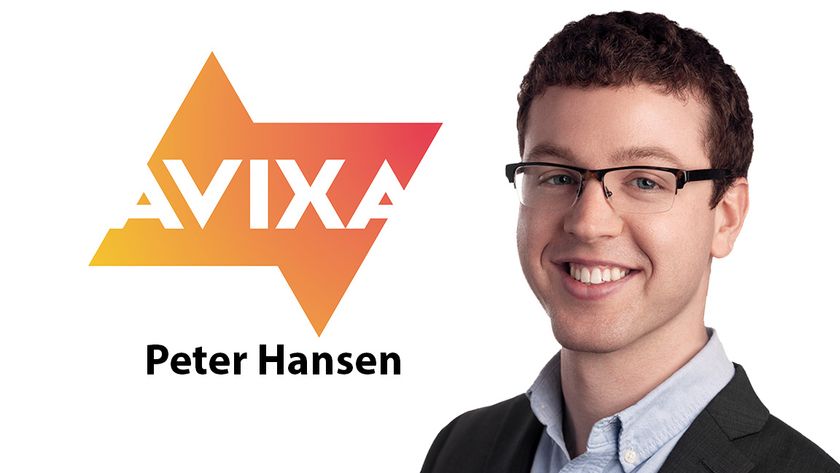Compensation is Linked to Who You Hire
As the North American economy gradually gains momentum, the issue of how to retain skilled labor is at the forefront once again. While those companies that were particularly demanding of their employees during the height of the crisis especially run the risk of seeing talented staffers jump ship, this is a matter that concerns all. If you’ve got it, flaunt it, they say; with the job market picking up, why wouldn’t high performers vaunt their know-how to at least get an idea of what others may have to offer them in return?
“In the North American market, the job economy is fairly robust after several years of severe difficulties,” said Tim Low, vice president of marketing at PayScale, the compensation data research firm headquartered in Seattle, WA. “What it means for businesses is that employees have more choice than they had for several years. That means that they can maybe take a look around if they’re not satisfied with their current position. And they can look for a position that might pay them better.”
For audiovisual systems integration firms, the marriage of AV to IT deepens the challenge. How can integrators—the majority of which are small to mid-sized businesses—compete with giants like Cisco when it comes to compensating top talent? Especially when, as Michael MacDonald points out, convergence goes both ways: AV isn’t just penetrating into IT ; Cisco itself has a toehold in AV with its video/ teleconferencing offerings.
MacDonald has the benefit of a dual perspective. A former executive at JBL Professional, Harman, and Yamaha, he’s well positioned to know what goes on at large companies. Today, as president of ATK Audiotek, a Valencia, CA-based AV production and integration company with a staff of 85, he’s applying his management skills to a considerably smaller operation. And, he noted, considerably smaller operations are often very attractive to professionals seeking work/life flexibility and an environment in which employees aren’t cordoned off from the leadership, where career development opportunities such as certifications are possible, and where decisions are made quickly.
“You do need to get to the bottom of what the person really wants to do and what they want to be,” he said. “There are lots of people out there that want to be in a small business, they want to have access to the management and the ownership of the company, and they want to be able to understand what the strategies are.” In his own firm, he said, employees who approach one of the three partners with an idea usually receive an answer within a matter of days—something that isn’t generally possible in a more hierarchical corporate setting. “I think we always have to look at capitalizing on this agility because we’re small and it’s easy to make decisions.”
Low acknowledges that while the factors that go into an individual’s decision on who to work for are complex, companies need to get compensation right. “Then after that there are things that you can do that affect the candidate’s choice,” he said. He challenges employers to bring it down to the ‘me level’: “Everybody wants to feel like they’re being paid fairly. Then they’ll talk about the other things.”
Matt Dlouhy, CEO at Communications Engineering Company (CEC), a Hiawatha, IA-based systems integrator boasting both an AV and an IT department, explains that his firm strives to compensate technicians at the higher end of the spectrum based on what its partners in more metropolitan areas are paying. “We recognize that talented people can make or break a company, so we really try to get to the high end of the compensation piece when it comes to the technical support staff,” he said. Managers and executives, he adds, may take advantage of performance-based incentives, and sales people function on an escalator program, whereby they must bank a certain amount of margin before they start earning commission. This, he says, rewards the best sales talent, and motivates lower performers to produce more.
Like a number of AV firms, ATK Audiotek offers profit sharing to mid and upper-level integration employees (such as those working in project management), based on the profitability of a project. “We build a program where their base salary is attractive, they have the flexibility to live their lives and enjoy what’s going on, and control their destiny and what they’re doing, and then they get to share in the successful execution of these projects the profit that’s generated by that. And if there is no profit generated by that, then there is nothing to share,” he explained. “It creates a really solid alignment between the ownership and management of our company, and the people that are out there every day, moving the chess pieces around on the board to get a successful outcome for our clients.”
Carolyn Heinze is a freelance writer/editor.
Get What You Pay For

What’s your compensation strategy? Or did you grow so fast that you really didn’t develop one?
“A lot of companies find themselves with 100 people before they realize it, and they have never taken a strategic approach to thinking about how they pay,” said Tim Low, vice president of marketing at PayScale. Frequently, this means that they are often paying too much for certain positions, such as those in administrative support. “You’ll see those people getting paid, oftentimes, more than they’re really worth in the market, simply because of their tenure at the company.” The problem with this is it limits organizations in how competitive they can be at compensating their skilled technology professionals.
This is touchy: you don’t want to fire the office manager that’s been with you from the beginning in order to fund skilled tech talent, and anyway, chances are they’re not going to be able to find the same job elsewhere at the rate they’re currently being paid. “If you do have an employee that is being paid above market for their current position, I think it’s often an opening to have a discussion about skills that that person might try to acquire to take on more responsibilities in the organization, and to move into a position that is closer in market value to what they’re already being paid.”
—C.H.











